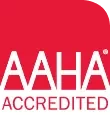Providing exceptional care for your pet involves customized treatments to address their unique needs. Certain breeds, such as brachycephalic dogs, are prone to specific health issues. Brachycephalic Airway Syndrome involves anatomical abnormalities that affect breathing in certain dog breeds. Dr. Katie Barry, our board-certified surgeon, specializes in treating affected dogs and has extensive experience performing Brachycephalic Airway surgery.
For questions about Brachycephalic Syndrome or to schedule a surgical consultation, contact Veterinary Healthcare Associates at (863) 324-3340.
What is Brachycephalic Airway Syndrome?
"Brachycephalic" means "short-headed," referring to dog breeds with short muzzles and noses. Common examples include English Bulldogs, French Bulldogs, Pugs, Boston Terriers, and Pekingese. These dogs have short muzzles and noses, often resulting in undersized or flattened throat and breathing passages. Brachycephalic dogs need care tailored to their specific needs to maintain their quality of life and ensure they stay comfortable.
Signs of Brachycephalic Airway Syndrome
If your pet exhibits any of the following signs, they may be affected by Brachycephalic Airway Syndrome:
- Loud breathing or snoring
- Difficulty breathing, especially during exercise
- Excessive panting
- Blue gums or tongue
- Fainting or collapse
- Difficulty eating or swallowing
Brachycephalic Airway Surgery
When anatomical abnormalities interfere with your dog’s breathing, surgery is often the best treatment. Early correction can significantly improve your dog’s airway function and prevent further health complications. At Veterinary Healthcare Associates, we prioritize your pet's safety during all surgical procedures and will follow strict protocols to ensure your dog is put under anesthesia and woken up safely from surgery. Dr. Barry performs brachycephalic surgery to correct issues such as:
Caring for Brachycephalic Dogs
Certain health issues may affect your brachycephalic canine which our team can take extra care to look out for when your dog comes in for a wellness exam. We’ll consider these specific health issues when we assess your pet:
Respiratory Issues
Brachycephalic breeds often experience respiratory problems due to their elongated soft palate or tracheal stenosis. Upper airway issues are also common due to their shortened skulls/snouts, caused by an elongated soft palate, everted laryngeal saccules, and stenotic nares.
Gastrointestinal Issues
The increased effort required for brachycephalic breeds to breathe can put them at risk for certain gastrointestinal issues, such as hiatal hernia. While these concerns can often be alleviated through airway surgery, our expert team at VHA is fully equipped to surgically correct these issues if necessary. We’re here to ensure your pet’s overall health and comfort.
Urogenital Issues
Brachycephalic males are prone to a condition known as prolapsed urethra, which can arise due to changes in respiratory and abdominal pressures. Surgical correction is typically necessary, and we strongly recommend addressing any airway issues simultaneously to ensure the best outcome for your pet's overall well-being.
Dental Disease
Brachycephalic breeds frequently have overcrowded teeth, leading to dental disease. Tartar buildup under the gum line releases bacteria into the bloodstream, affecting your dog’s heart, liver and kidneys. Our team at VHA reduces dental disease risk through comprehensive teeth cleaning services, including full mouth examinations, digital X-rays, and thorough cleanings to maintain your pet’s dental health.





